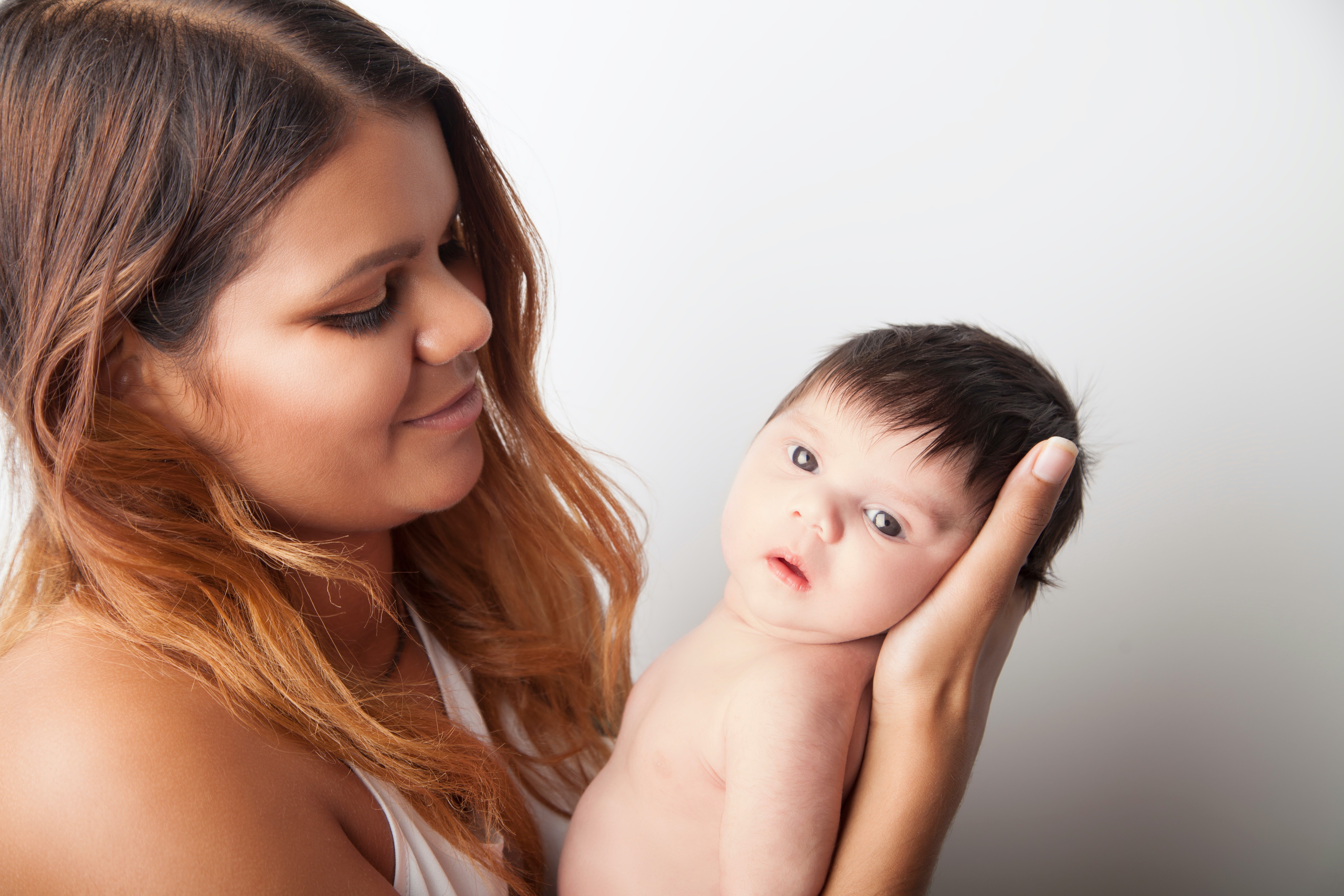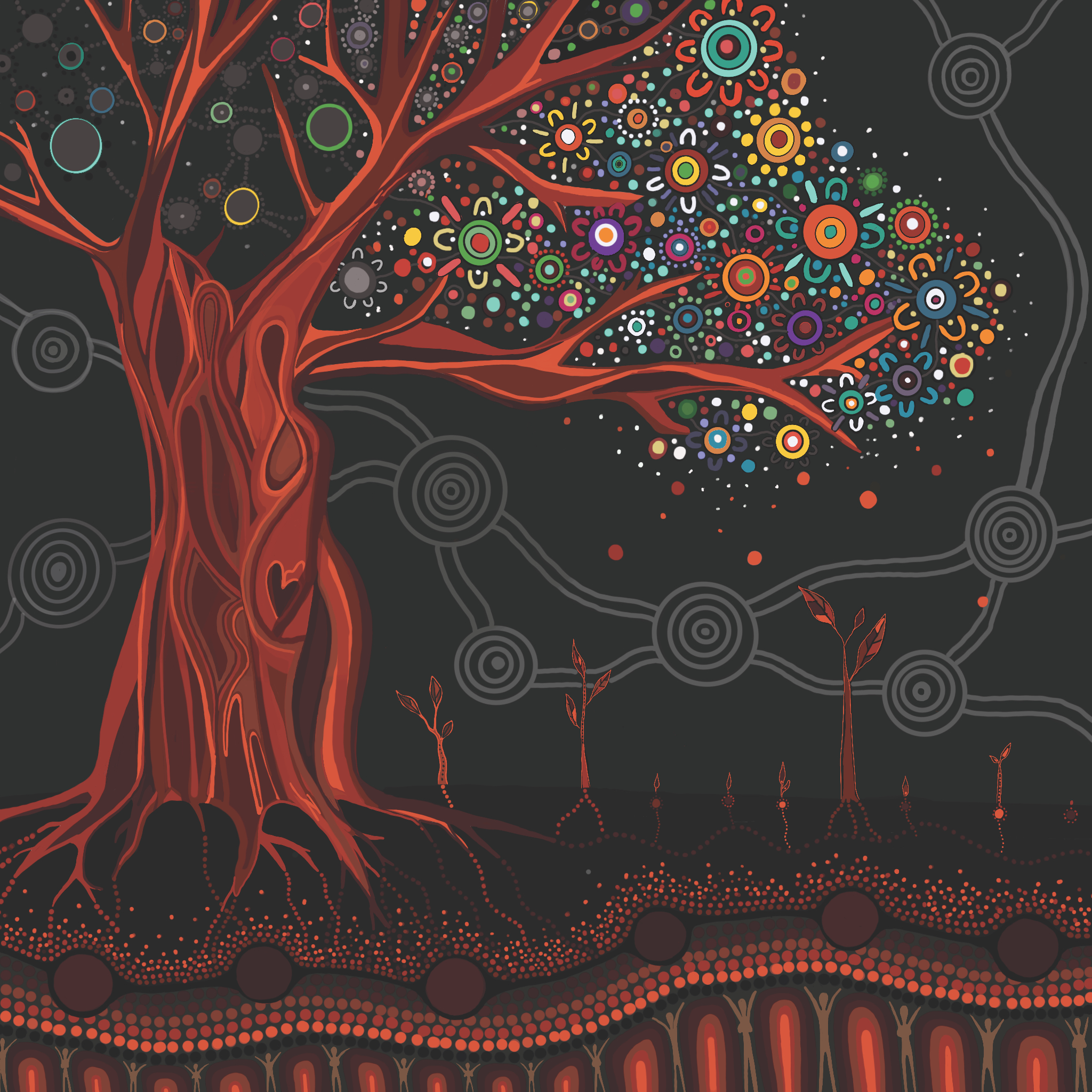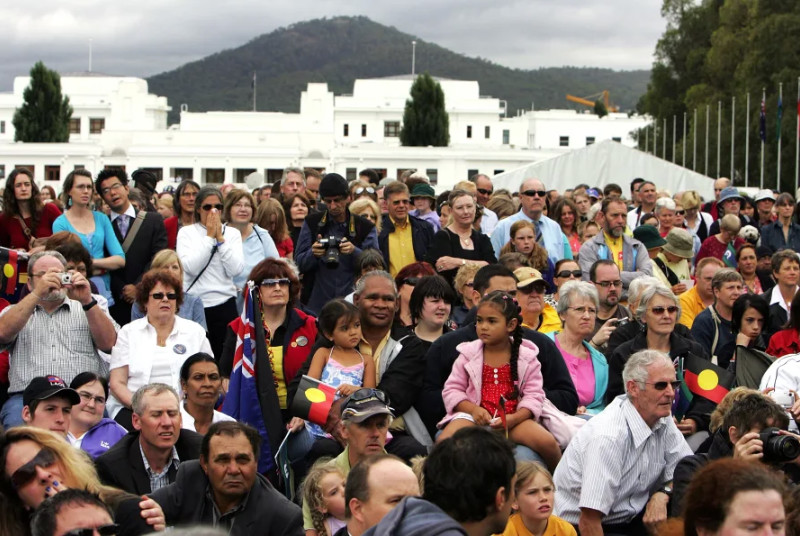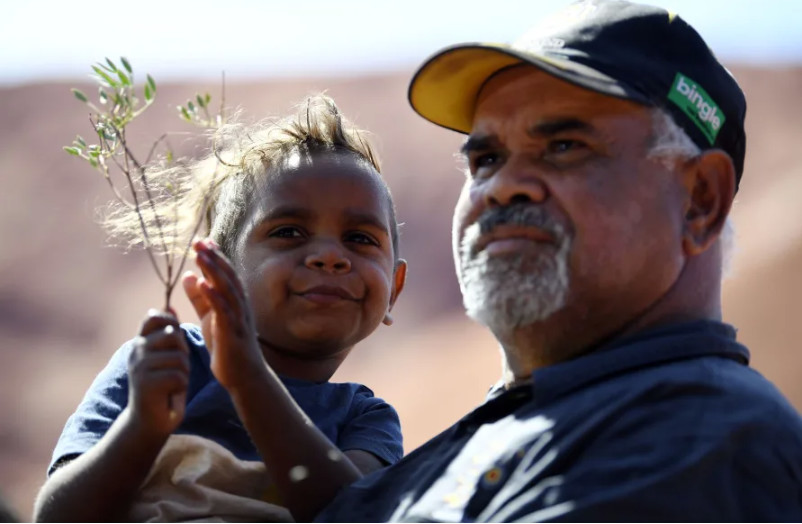
Health & Medicine
Bringing an Aboriginal lens and ownership to health data

Aboriginal and Torres Strait Islander leaders and communities are working with researchers to create safe and sacred places for babies and families in the first 2000 days of life
Published 7 September 2023
“The birthing tree was a place of ‘women’s business’ where Aboriginal women came for many centuries to a place of security and safety during labour and birth. The tree is strong and healthy and has strong roots that are embedded deeply in culture, Country and family.”
These are the words of Aunty Dr Doseena Fergie OAM, a Wuthathi, Mabiauag Island and Ambonese Elder, nurse, midwife and health researcher.

For at least 60,000 years, Aboriginal and Torres Strait Islander peoples have adapted and thrived in Australia.
We had over 500 Aboriginal and Torres Strait Islander countries, each with sophisticated laws, systems and ways of being, as well as thriving art and spiritual culture. The safety and relational development of Aboriginal and Torres Strait Islander children were fostered within systems of kinship and community care.
But in recent times, places of birth have not been safe or sacred for Aboriginal and Torres Strait Islander families impacted by colonisation, violence and discrimination.

Health & Medicine
Bringing an Aboriginal lens and ownership to health data
Our new research project ‘Replanting the Birthing Trees’ uses the metaphor of the physical trees to recreate safe and sacred places in the first 2000 days of life so that Aboriginal and Torres Strait Islander babies can have the best start to life.
Our Aboriginal-led and community co-designed project has strong governance and oversight from community-controlled organisations, to equip healthcare services and support families to improve health outcomes.
As a Palawa Trawlwoolway woman from Tasmania, midwife, mother and public health researcher I spent the first decade of my research career looking for evidence of effective strategies to support parents who experience diabetes and smoke tobacco in pregnancy.
During this time, it became apparent to me that we needed to better understand the role of complex and intergenerational trauma to address these and many other public health issues.

In this context, trauma refers to ongoing intense physical and psychological responses that can result from previous exposure to prolonged or repeated severe threats, often from someone meant to provide care being physically or emotionally harmful or threatening.
The ongoing effects can impact parents’ social and emotional wellbeing, which can lead to children in successive generations experiencing ‘intergenerational trauma’.
Professor Judy Atkinson describes cycles of intergenerational trauma in her seminal work ‘Trauma trails, recreating song lines: the transgenerational effects of trauma in Indigenous Australia’.

Health & Medicine
Birth isn’t destiny
In a national survey of primary maternity care providers, 98 per cent reported that trauma, stress and grief are significant issues for Aboriginal and Torres Strait Islander parents.
Yet 43 per cent were not satisfied with the ability of their service to address this.
Currently, there is no applied evidence for how to safely and effectively identify and support Aboriginal and Torres Strait Islander parents experiencing complex trauma.
To address this, the project ‘Healing the Past by Nurturing the Future’ was launched in 2018 to bring together the Western evidence and millennia-old wisdom of communities to co-design acceptable, safe and feasible perinatal strategies for Aboriginal and Torres Strait Islander parents experiencing complex trauma.
‘Replanting the birthing trees’ is a scale-up of this project that will involve working in collaboration with seven services, including the Royal Women’s Hospital and the Mercy Hospital in Melbourne, and five services in Western Australia.

‘Co-design’ which actively engages community members in how research is conducted is integral to this project. We are working with community, Elders, leading researchers, midwives, parents and other healthcare professionals to develop resources for parents, healthcare professionals and advocacy to create better systems.
This project supports Aboriginal and Torres Strait Islander leaders in their ongoing efforts to improve care for families, including Aunty Gina Bundle at the Royal Womens Hospital and Ms Marika Jackomos at the Mercy Hospital for Women”.
As one of the world’s oldest continuing cultures, we have a lot to share about ways to foster connections and relational wellbeing.
Specific cultural practices to foster Aboriginal and Torres Strait Islander dimensions of physical, social, cultural and spiritual wellbeing, started before birth and continued on throughout the lives of our Ancestors until after death, including ceremonies during pregnancy for mothers and fathers and practices that help babies connect with family and kin.

Politics & Society
Going beyond healing to build Indigenous power
While communities are resilient, intergenerational trauma is one of the things driving the persistent health inequities experienced by Aboriginal and Torres Strait Islander peoples.
The National Aboriginal and Torres Strait Islander Health Plan recommends we use a ‘life-course approach’ to address health inequities.
The best ‘life-course opportunity’ for preventing intergenerational and complex trauma is the transition to becoming a parent. Working with families during pregnancy, birth and the early years – the first 2000 days – provides a critical opportunity to support the healing of intergenerational trauma in young parents and to support nurturing care and the best possible start to life for the child as well.
There are three reasons why this time is so important. First, people are more likely to experience trauma-related distress. So, this time is almost like a ‘natural stress test’ for experiencing trauma-related stress.
Second, despite the challenges, qualitative and quantitative studies show that it’s the best time for healing and recovery.

The love that children bring into the world is the healing salve of complex trauma. Although complex trauma disrupts relationships and connectedness, babies come into the world needing to connect and attach with caregivers, and this can help to heal from past trauma.
A positive strengths-based focus during this often-optimistic period has the potential to transform the ‘vicious cycle’ of intergenerational trauma into a ‘virtuous cycle’ that contains positively reinforcing elements through nurturing the love that children bring into the world with them.
From a public health perspective, there are few other healing opportunities for relational trauma as strong as the transition to parenting during a person’s life course.

Health & Medicine
Backing the strengths of Aboriginal young people
Thirdly, it’s a time when young people, who normally do not need health services, make contact with the healthcare system. We want to make sure that those interactions with the care system are therapeutic, positive and not harmful.
Unfortunately, one of the things we know from the past, is that the maternity care system has been harmful for Aboriginal and Torres Strait Islander people.
One of the big parts of this work – the elephant in the room – has been the poor experiences of Aboriginal and Torres Strait Islander families with child protection services.

The healthcare system should be providing therapeutic care and support, and not compounding trauma. For too many families, having a baby removed is still a devastatingly traumatic experience, and it’s getting worse, not better.
By working with communities to recreate safe and sacred spaces for Aboriginal and Torres Strait Islander parents giving birth, we want to support healing by providing nurturing care and bonding with your baby, so that Aboriginal and Torres Strait Islander babies can have the best start to life.
The ‘Replanting the Birth Trees’ project is supported by a grant from the Medical Research Future Fund and is led by Professor Cath Chamberlain, Melbourne School of Population and Global Health; Professor Rhonda Marriott AM, Ngangk Yira Institute for Change, Murdoch University; and Professor Marcia Langton AO, Redmond Barry Distinguished Professor, Melbourne School of Population and Global Health; and the Chair of Project Governance is Aunty Doseena Fergie. Meet the full research team here.
Banner: Shutterstock